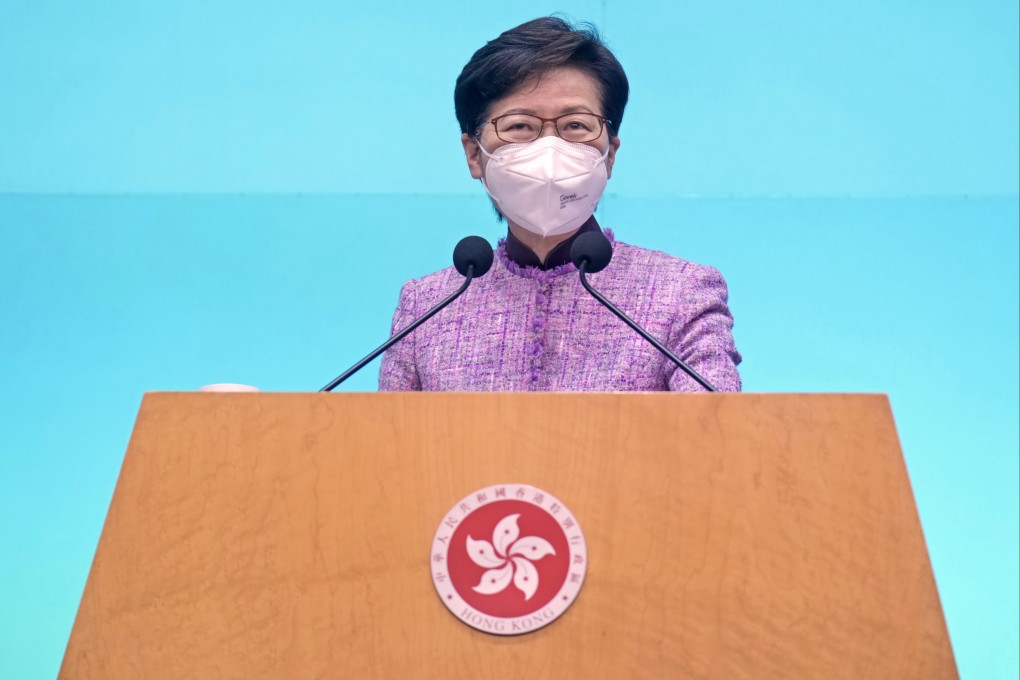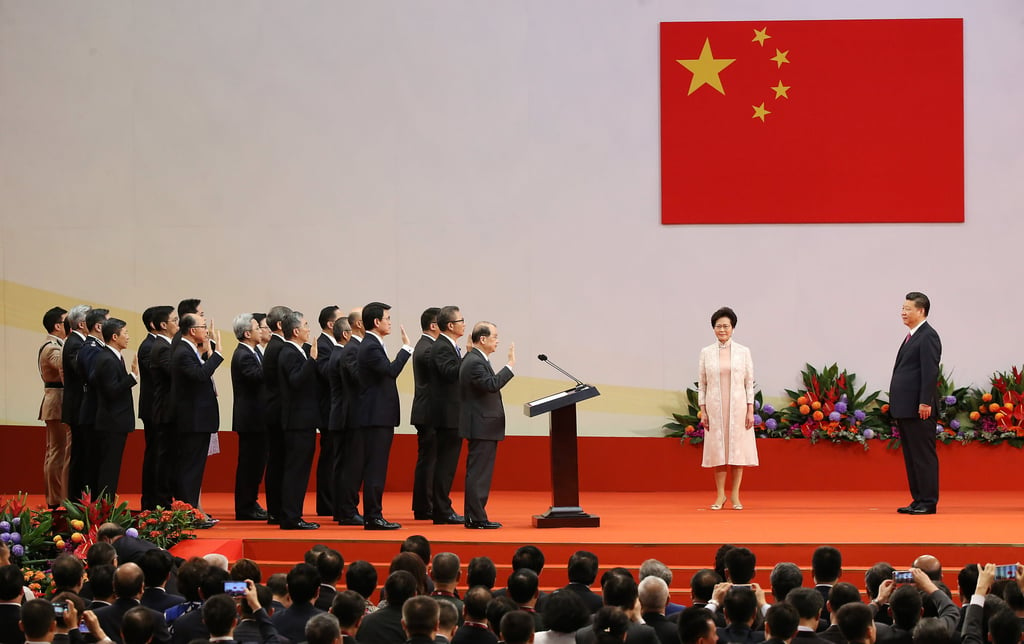A legacy cut short or a leader who cultivated her downfall? Political veterans give mixed report card for Hong Kong’s first female leader
- Lawmakers, aides and others who worked closely with the chief executive reflect on her five years in power
- They describe her as dedicated and extremely hardworking, while noting she was faced with unprecedented challenges and the public simply became ‘fed up’

But what caught some off guard was her revelation that a year earlier she told Beijing about her intentions during the annual session of the National People’s Congress.
Several pro-establishment veterans said Lam’s decision to inform the central leadership seemed like “making an advance by retreating” – the move allowed her to minimise the embarrassment she would have faced if Beijing did not give her a green light for a second term after failing to adequately handle the 2019 social unrest. After all, it was not up to Lam to choose to stay or walk away, they argued.

While analysts and pundits agreed that Lam’s five years were filled with several “unfortunate events”, from the social unrest to the Covid-19 pandemic, they said her Achilles’ heel was her administration’s poor handling of the fifth wave of infections over the past three months.
But they also cautioned that Lam’s legacy might not be set in stone just yet. One veteran politician expected she could be made vice-chairwoman of China’s top advisory body next year, when the city’s first leader, Tung Chee-hwa, was expected to step down from the position due to his health.
It was five years ago when Lam secured 777 votes, or two-third of the 1,194-member Election Committee, and replaced Leung Chun-ying as Hong Kong’s leader.
For a while, it appeared she was intent on courting the support of younger residents as part of a campaign pledge to heal a divided city. But that promise went pear-shaped when Lam insisted in February 2019 on pushing through a controversial extradition bill that would have allowed fugitives to be sent back across the border to mainland China. Protests against the legislation morphed over the course of months into a broader anti-government movement, leaving the city even more divided.
